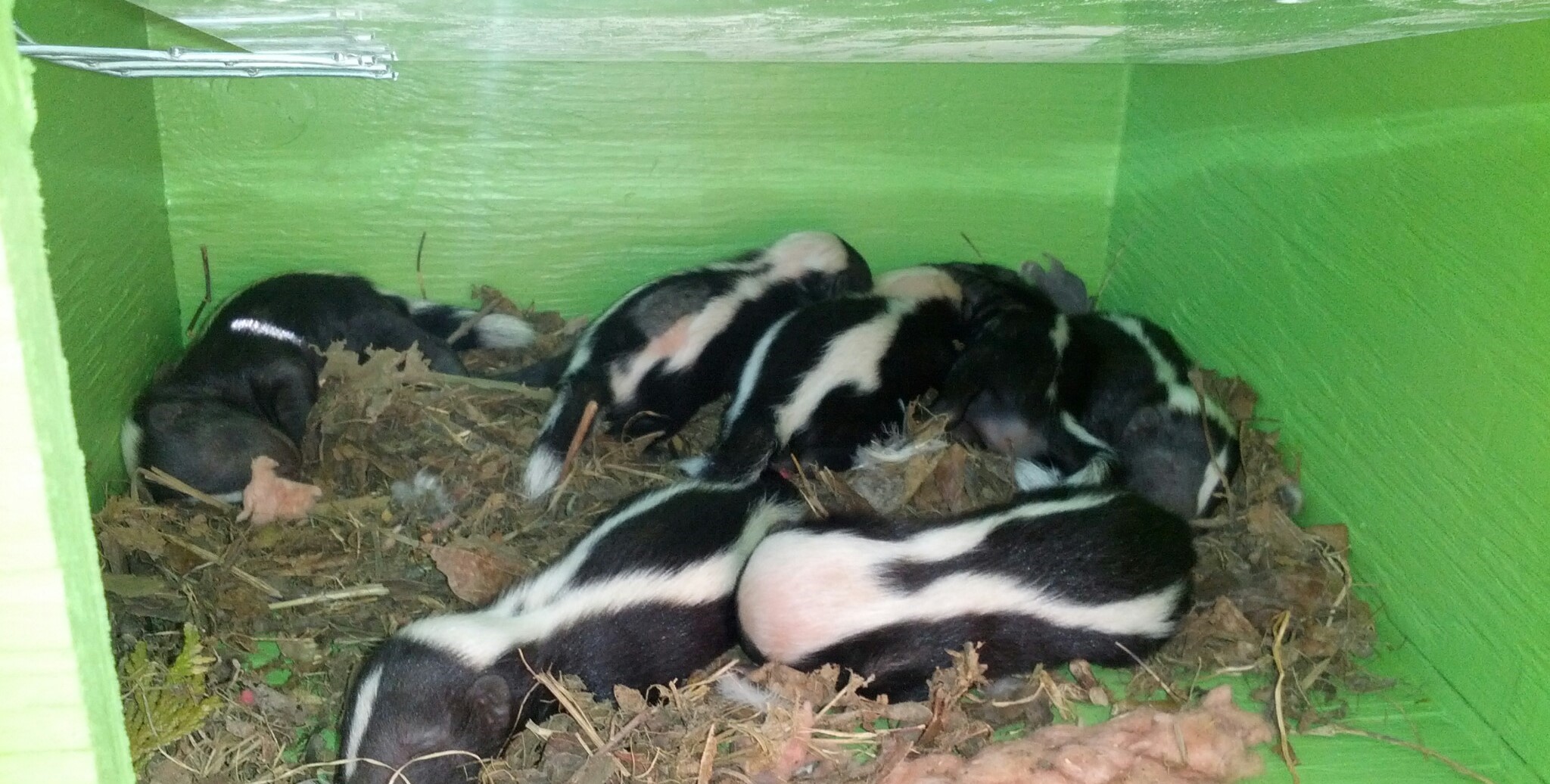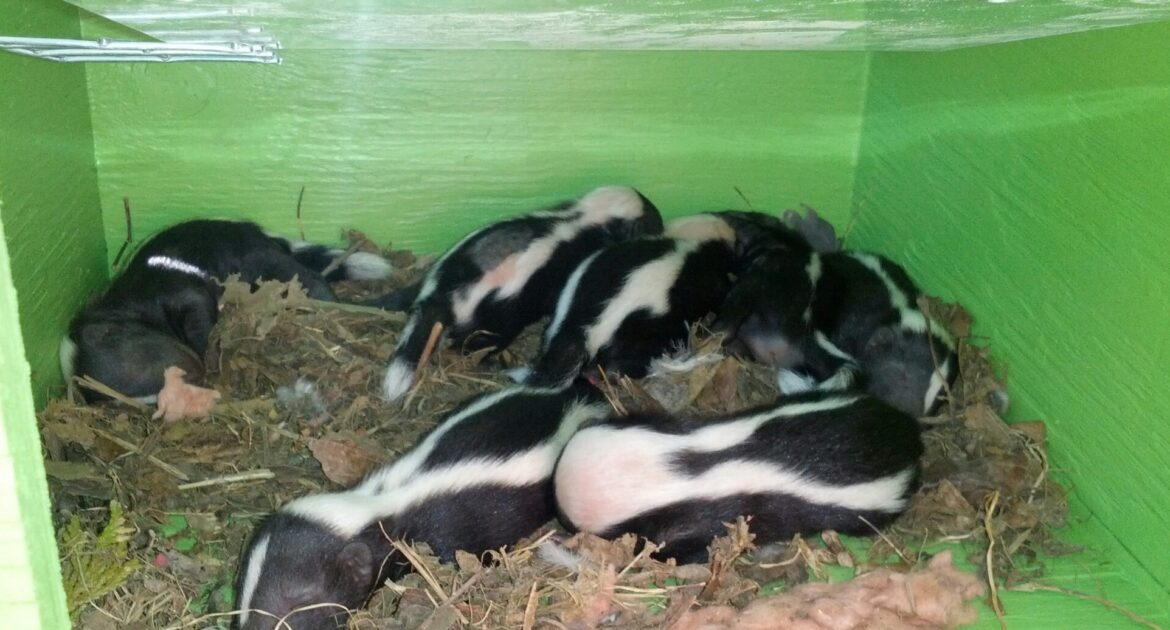The thought of encountering a skunk might be a little unsettling for many Minneapolis residents, especially considering their reputation for spraying when afraid. But will a skunk attack you? The short answer is no—not in the traditional sense of attacking. Skunks are not aggressive animals and would rather avoid conflict altogether. However, understanding skunk behavior is essential in keeping yourself and your home safe. By learning practical skunk encounter safety tips and methods for preventing skunk attacks, you can minimize unpleasant incidents and protect your space.
At Skedaddle Humane Wildlife Control in Minneapolis, we know how important it is to keep your home secure from unwelcome wildlife like skunks. Whether you’ve had a skunk wander into your yard or want tips to avoid future encounters, this guide will help you understand how to reduce risks and handle these unique creatures.
Will a Skunk Attack You?
Will a skunk attack you? The simple answer is no—not in the aggressive, chasing way you might imagine. Skunks are peaceful by nature. Their first instinct is to avoid conflict rather than seek it. However, if they feel cornered or scared, they’ll use their well-known defense mechanism: spraying their intensely foul-smelling liquid. While a spray may not physically harm you, it’s undoubtedly unpleasant and can be difficult to remove from clothing or pets.
Skunks use their spray as a last resort, but there are steps you can take to ensure you don’t unintentionally provoke them. For starters, always give a skunk plenty of space if you spot one in your yard or while outdoors. Avoid sudden movements or loud noises, as these can make the animal feel threatened. It’s also a good idea to keep your pets on a leash, as curious animals approaching a skunk may provoke a defensive response.
Understanding the warning signs is critical in preventing skunk encounters from escalating. Skunks typically show several behaviors to indicate they feel threatened. Common warning signs include stamping their feet, hissing, or raising their tail in preparation to spray. If you notice any of these signals, back away slowly and calmly. Turning your back or running could startle the skunk further, increasing the risk of an unpleasant encounter.
Preventing these situations altogether is even better. Keeping your yard clear of attractants like food waste, pet food, or accessible garbage bins can discourage skunks from approaching your property in the first place. Installing motion-activated lights or sprinklers can also help deter them, as skunks prefer quiet, dark environments. Taking steps to seal gaps or spaces under decks and sheds can help prevent skunks from nesting or lingering near your home.
By staying mindful of skunk behavior and following these simple precautions, you can co-exist with these animals peacefully while avoiding any defensive sprays.
Skunk Encounter Safety Tips
If you come face-to-face with a skunk, staying calm and knowing how to respond can make all the difference. Here are some simple, practical skunk encounter safety tips to help you avoid getting sprayed:
- Stay Calm and Move Slowly: A gentle, deliberate approach is critical. Quick movements or loud noises can startle the skunk, increasing the likelihood of it spraying in self-defense. For example, if you accidentally surprise a skunk near your garbage bins, freeze for a moment to give it time to register you as non-threatening before moving away.
- Watch for Warning Signals: If the skunk begins stomping its feet, hissing, or lifting its tail, it’s a clear sign it feels threatened. Back away calmly and gradually to give it plenty of space. These are their ways of warning you to stay away, so respecting these signals usually prevents further escalation.
- Keep Pets Restrained: Dogs, in particular, tend to approach skunks out of curiosity, which can provoke a defensive response. Always keep your pets on a leash when outside, especially during dawn or dusk when these animals are most active. For added protection, consider a temporary barrier or fence around areas where wildlife activity has been observed to keep pets at a safe distance.
- Give Them an Escape Route: Skunks are more likely to spray when they feel trapped, so ensure they have a way to retreat safely. Never block a skunk’s exit. For example, if a skunk is near your back porch, step back and make sure there’s a clear path for it to move away from you.
These tips can make skunk encounters far less intimidating and reduce the chance of you or your pets being sprayed. Remember, these animals want to avoid you just as much as you want to avoid them!
Preventing Skunk Attacks
Preventing skunk attacks starts with making your home and yard less appealing to these animals. Here are some strategies Minneapolis homeowners can use to deter these animals from visiting their property:
- Secure Trash Bins. Skunks are drawn to the odor of discarded food. Tightly seal garbage cans and consider using animal-proof lids to keep your bins off-limits. To make your trash even less appealing, try double-bagging any food waste or using deodorizing trash bags that help mask strong smells. Keep bins stored in a secured shed or garage until collection day if possible, as this further limits access to curious animals.
- Remove Other Enticing Food Sources. Outdoor pet bowls, fallen fruits from trees, and bird feeders often attract wild animals, including skunks. Clearing these food sources can make your yard less inviting. Make it a habit to bring pet food dishes inside after your pets are done eating, and regularly check under fruit trees for any leftovers on the ground. If you have bird feeders, consider using a tray or mat underneath them to catch stray seeds and clean up debris daily.
- Block Hiding Spots. Skunks often seek shelter under porches, decks, and sheds. Use heavy-duty materials, like welded mesh, to seal off these areas and prevent them from digging dens on your property. Make sure the material is buried at least a few inches below ground, as skunks are persistent diggers. Walk around your property frequently to look for small holes or gaps where skunks could squeeze through, and patch up any weak spots before they become a problem.
- Install Deterrents. Motion-activated lights, sprinklers, or other deterrent systems can scare off nocturnal animals like skunks before they get comfortable in your yard. These devices work especially well in high-traffic areas, like driveways or near garbage bins, since they surprise the animal before it can settle in. Some devices even emit ultrasonic sounds that humans can’t hear but discourage skunks and other wildlife. Experiment with different deterrents to see which combination works best for your property.
- Maintain Your Property. Overgrown bushes, dense shrubs, woodpiles, and debris can all provide ideal hiding spots for skunks. Regular yard maintenance is an effective way to keep your property less inviting for wildlife. Keep grass trimmed, prune thick shrubs, and stack firewood neatly, preferably on raised platforms. If you have compost piles, use contained bins instead of open setups to make them less accessible to these animals.
By being proactive and applying these measures, you can reduce the chances of future skunk encounters while also keeping your home and family safe. Small changes, like cleaning up food sources or securing hiding spots, can make a big difference in keeping these animals out of your yard.
When to Seek Professional Help
Sometimes, despite your best efforts, skunks may still find ways to settle near your home. That’s when it’s time to reach out for professional help. At Skedaddle Humane Wildlife Control in Minneapolis, we specialize in humane, effective methods to handle wildlife issues safely. One way we do this is by using our innovative one-way doors. These specially designed doors allow skunks to exit secluded areas, like under porches or decks, but prevent them from re-entering. This approach ensures the animal is relocated without putting your safety at risk.
With the help of professionals, you don’t have to take chances with DIY methods that might escalate the problem. Skedaddle’s experienced wildlife control team can help you identify and seal entry points, keeping these animals and other wildlife from making themselves at home on your property in the future.
A Skunk-Free Home Begins Today
Living in Minneapolis means sharing space with local wildlife like skunks, but that doesn’t mean you have to compromise your safety and comfort. By applying skunk encounter safety tips, preventing skunk attacks with smart yard strategies, and understanding their behavior, you can keep these animals at a safe distance.
If skunks have become a nuisance around your home, Skedaddle Humane Wildlife Control in Minneapolis is here to help. We use humane removal methods, such as one-way doors, to resolve the issue while prioritizing the safety of both homeowners and animals. Request an estimate today and take the first step toward a secure, skunk-free property!




